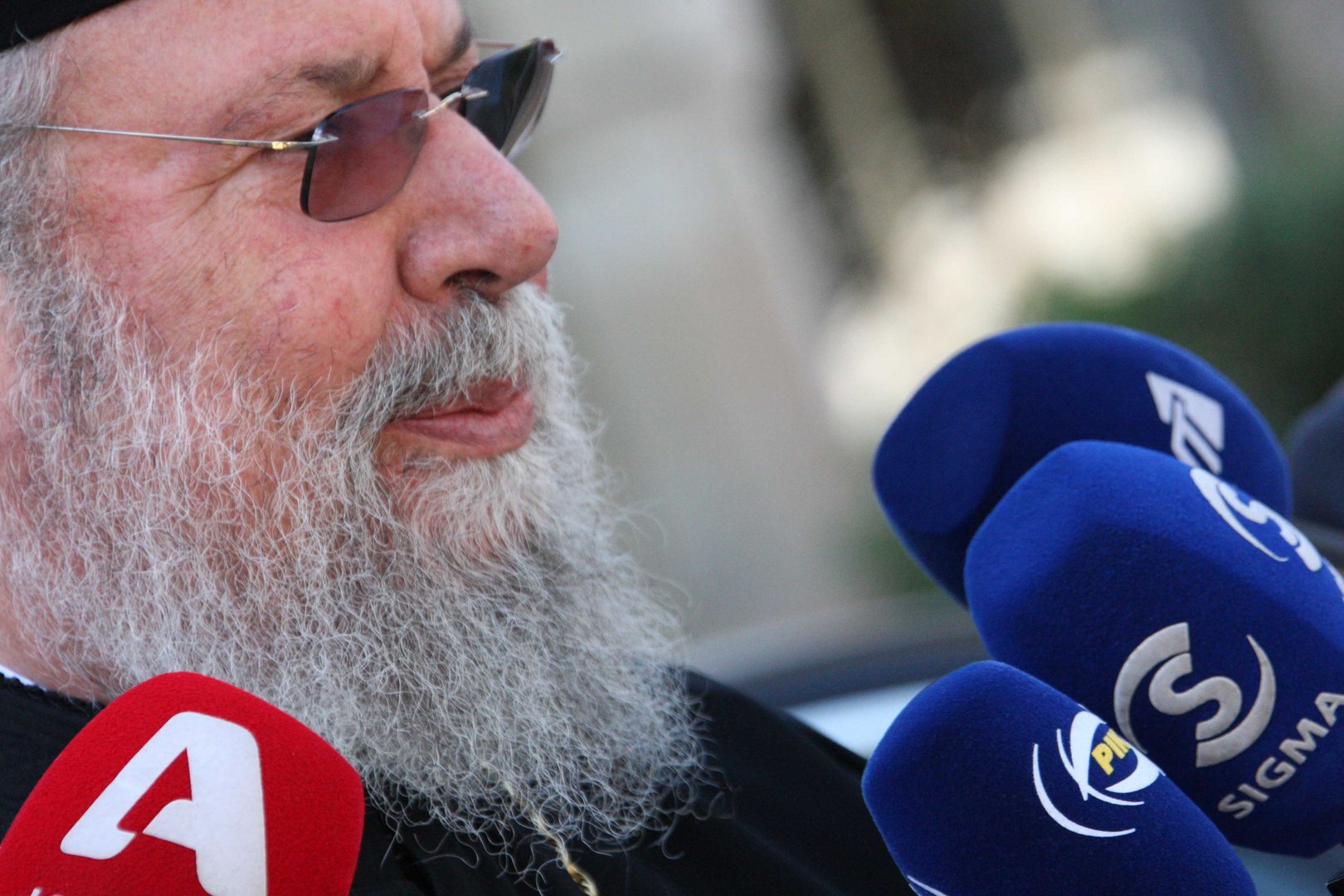And that became clear with the eulogies for the late archbishop
By Christos Panayiotides
The opposite of hyperbole is objective assessment, which unfortunately is often an element missing from the judgement passed by our compatriots. A typical case of the lack of a posthumous objective assessment of the work and personality of a person that is the subject of public commentary is that of Archbishop Chrysostomos, where most mass media have indulged in an unreserved eulogy of the deceased. This is in contrast to certain social media platforms which have utilised inappropriate insults for highlighting their disagreement with various positions and views held by the late prelate.
Personally, I do not subscribe to the thinking that argues for avoiding an objective assessment of the work and the personality of a deceased person, identifying the positive as well as negative elements of his/her journey on the planet, because it suggests a lack of respect. On the contrary, the respect towards the deceased dictates an objective assessment and the setting of examples to imitate as well as to avoid.
Let’s look at one of the accomplishments of the late archbishop.
As in the case of all his predecessors, the main concern of Archbishop Chrysostomos was to maintain and strengthen the power and influence of the Church of Cyprus on Cypriot society. This role of the Cypriot church was established over the years, as a consequence of the absence of any other institutional body empowered to represent and speak on behalf of the Cypriot people.
Thus, the concept of the Cypriot “ethnarchy” and the elevation of the ecclesiastical leader to an “ethnarch” (literally, the leader of the nation) were born in Cyprus. Interestingly, shortly after the announcement of the archbishop’s death, a television station announcer referred to the “ethnarch Chrysostomos”.
Although following the declaration of the independence of Cyprus in 1960, the “ethnarchic role” should have been transferred to the democratically elected president of Cyprus, things got muddled with the election of the then archbishop as president of the Republic of Cyprus, who ruled Cyprus for 17 years (from 1960 until his death in 1977), in the dual capacity of archbishop and president of Cyprus.
These historical facts enabled Archbishop Chrysostomos to assume that he had the right to intervene in the political processes of Cyprus, such as the selection of the education minister and, most importantly, managing the Cyprus issue and the determining the political future of the country.
Archbishop Chrysostomos exercised this “right” without any hesitation and, among other things, demanded like his predecessors to name or at least approve the education minister, as well as other persons filling influential positions of the Cypriot state.
On one occasion, the archbishop himself publicly stated that the president of the Republic shared with him the idea of a two-state arrangement. It is also well known that the prevailing view within the Cypriot Orthodox hierarchy is that, between the acceptance of political equality and the effective participation of Turkish Cypriots in the management of the Cypriot state and the maintenance of the status quo, the balance clearly tilts in favour of the status quo, even if this option leads – with absolute certainty – to the partition of Cyprus.
The irony of this is that the amendments made by the late archbishop in the process of electing a new head of the Cyprus Orthodox church have disempowered the church from expressing an opinion on the political future of Cyprus. Under previous rules, to be elected to the position of the head of the church, one had to secure the support of both the Greek Cypriot Orthodox community and that of the hierarchy of the Church of Cyprus. As a consequence, one could argue that the person elected under the previous system had the popular mandate of the majority of the Greek Cypriot community.
Under the new system, which will be used to elect the new archbishop, the power of the civil vote will be watered down, given that every person registered to vote in the ecclesiastical elections will be effectively able to nominate any clergyman of his choice as a candidate. This will have a dilutive effect on the impact of the non-organised civil votes. In contrast, the electoral power of the members of the synod, who stand for election to the post of the archbishop, will be enhanced, because these are the people who control the communication channels with the parishioners and have the financial means to influence their choice.
Apart from the impact of the watering down the civil votes, the newly introduced possibility of any Orthodox Christian (who has resided in Cyprus for a period of one year) to cast a vote in the Cyprus ecclesiastical elections, enables non-Cypriots to influence the election result (particularly, if they are organised in groups). This concern primarily relates to Russia, where the dividing line between the Russian church and the Russian state is almost indistinguishable. Obviously, the impact of the foreign voters on the outcome of the ecclesiastical elections will depend on the turnout of the Cypriot voters. It will be interesting to see how this issue develops in practice.
Under the new electoral system, the ultimate choice of the archbishop (from among the three candidates pre-selected by the laymen) will be made by the Holy Synod. It is natural to expect that the members of the Holy Synod will seek the enthronement of a person who supports and will work for the strengthening of the power and the influence of the Church of Cyprus over the wider Cypriot society and, in particular, in respect of the crucial issue of shaping the political future of the whole of Cyprus.
The idea that a foreign state has the ability in the above-described manner to influence the future of Cyprus makes me shiver. I do hope that something is wrong with my logic!
Christos Panayiotides is a regular columnist for the Cyprus Mail, Sunday Mail and Alithia







Click here to change your cookie preferences